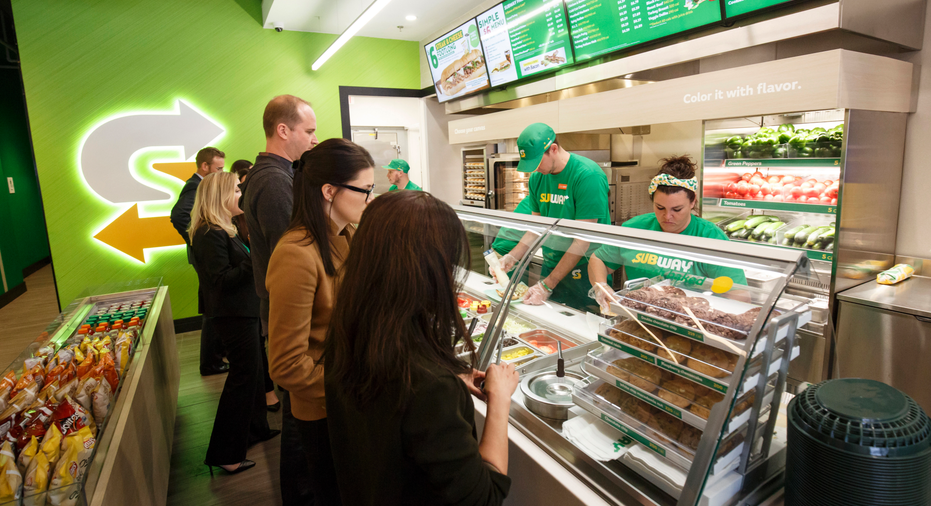Subway looking to update stores' not-so-fresh look

NEW YORK – Subway wants to freshen up the look of its stores as it tries to stem a sales decline.
The sandwich chain says the redesign — which includes a brighter atmosphere, displays of vegetables behind the counter and ordering tablets — is the first major revamp since the early 2000s. The changes will take place as stores around the country are remodeled and new ones are built.
The makeover comes as Subway's sales have fallen for four straight years amid competition from places including Jimmy John's and Firehouse Subs. Since 2012, Subway's average annual sales per store are down 13 percent at $420,000, according to industry tracker Technomic. Last year, its number of U.S. stores also shrank for the first time, though the company says it still has more than 26,200 domestic locations. Globally, the chain says it has more than 44,800.
Don Fertman, Subway's chief development officer, says franchisee agreements require them to remodel stores every seven to 10 years. The company says franchisees will have a variety of design options to pick from, and that it is looking for ways to help them lower costs.
Fertman says the current "Tuscany" design was intended in part to reflect the Italian heritage of founder Fred DeLuca, who died in 2015. His sister, Suzanne Greco, is now CEO of the privately held company.
"It's been working for us since the early 2000s," Fertman said, but noted that it was time to evolve.
In the U.S. and Canada, new stores will be built using the redesign. About 150 stores will get the new look in the coming months, Fertman said. By the end of next year, he said 3,000 to 5,000 stores globally should have it, with most of those being in the United States and Canada. Subway says the stores with new designs will include new menu items, such as bread made without gluten.
Some have reservations about the plans.
John Gordon, a restaurant industry analyst, said Subway might be better off focusing on improving its food before turning to remodeling, given the tight financial situations of many franchisees.
While the company hasn't yet specified the cost, the remodeling looks like it will be pricey for franchisees, notes Keith Miller, who has three Subway stores in Northern California.
Miller, who is also head of the Coalition of Franchisee Associations, said two key questions are whether remodeling would boost sales, and whether franchisees can afford it. If franchisees can't afford it, Miller said it's not really a solution.
"How do you require someone to do something that they can't financially do?" he said.
__
Follow Candice Choi at www.twitter.com/candicechoi



















